New Scientist covers the latest developments in science and technology that will impact your world. New Scientist employs and commissions the best writers in their fields from all over the world. Our editorial team provide cutting-edge news, award-winning features and reports, written in concise and clear language that puts discoveries and advances in the context of everyday life today and in the future.
Elsewhere on New Scientist
Virus-driven progress • Covid-19-spurred medical advances are great, but we can’t return to business as usual
New Scientist Australian Edition
Brazil fears covid collapse • The country is buckling under record coronavirus cases and poor governance, while Chile enters strict lockdown, reports Luke Taylor
How much worse can variants get? • The coronavirus could turn into just another cold, but it could also evolve into something much deadlier, reports Michael Le Page
The covid-19 risk from our pets
A third of UK population might not be protected from third wave
Meditation can help with covid-19 anxiety • Meditation could retune our brains and help us cope with the long-term effects of the pandemic, neurologist Steven Laureys tells Helen Thomson
Heat pipes helped shrink Mercury • Magma travelling from the planet’s core to its surface led to cooling
Hotter and drier days could make wildfires a big threat in the UK
A plant gene crossed into insects and helps them feed
GM crops could greatly reduce EU carbon emissions
Artificial cells can grow and split like natural bacteria
DNA explains why some rabbits walk on their front legs
US desert is a bee hotspot • Hundreds of bee species live in a patch of land on the US-Mexico border
UK hydrogen vehicle switch would need boost to wind power
Ancient rattlesnake lived in the jaw of a mastodon
NFT developers call for cut in carbon emissions
Black hole image reveals its swirling magnetic fields
A sign of new physics? • Reports that a discovery at the Large Hadron Collider could poke holes in our understanding of the universe should beware tricky statistics, says Richard Webb
Robot ties knots using two fingers on each arm
Snoozing octopuses seem to slip in and out of dreams
Sheepskin was a fine way to spot fraudsters
Prehistoric delivery kept miners well fed
Clues to why human brains grow so large
Tiny swimbots get a steer from a ‘brain’
Lake toxin may be to blame for US eagle deaths
Really brief
An unsung hero • Mary Wortley Montagu championed the use of inoculation against smallpox, but her pioneering work is often overlooked, says Jo Willett
The many mysteries that remain • The standard model of particle physics explains a lot of observations, but the strange nature of neutrinos isn’t one of them, writes Chanda Prescod-Weinstein
Your letters
Extreme moments on Earth
Smells good, tastes good! • Why do flavour and aroma matter so much to creatures like us? Simon Ings finds out in Delicious, a charming new book with a compelling message
Getting creative in space • Will we soon 3D print our lunch or spare parts for surgery? A great podcast explores the latest in engineering, finds Gege Li
Don’t miss
What do genes and love make? • When a company develops a test that can reveal your perfect partner, the result is plenty of drama and intrigue, finds Abigail Chandler
A black hole in our backyard • Black holes born in the big bang could transform our view of the universe. Is there one lurking on the fringes of the solar system, asks Stuart Clark
Your first line of defence • A breakthrough in understanding the more ancient part of our immune system could change...

 Apr 13 2024
Apr 13 2024
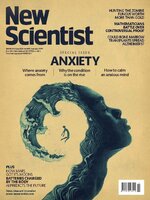 Apr 06 2024
Apr 06 2024
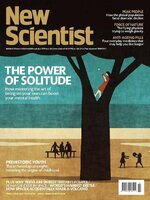 Mar 30 2024
Mar 30 2024
 Mar 23 2024
Mar 23 2024
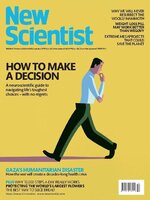 Mar 16 2024
Mar 16 2024
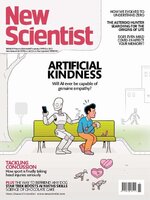 Mar 09 2024
Mar 09 2024
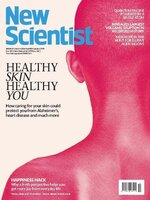 Mar 02 2024
Mar 02 2024
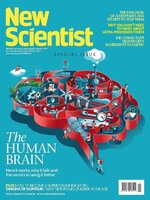 Feb 24 2024
Feb 24 2024
 Feb 17 2024
Feb 17 2024
 10 Feburary 2024
10 Feburary 2024
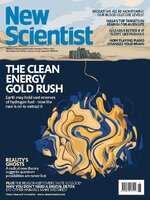 Feb 03 2024
Feb 03 2024
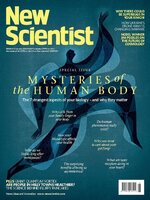 Jan 27 2024
Jan 27 2024
 Jan 20 2024
Jan 20 2024
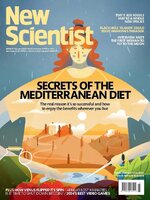 Jan 13 2024
Jan 13 2024
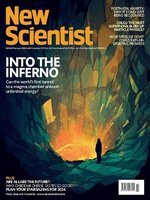 Jan 06 2024
Jan 06 2024
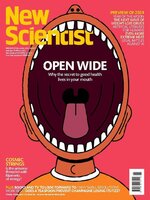 Dec 30 2023
Dec 30 2023
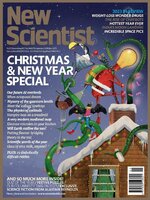 Dec 16 2023
Dec 16 2023
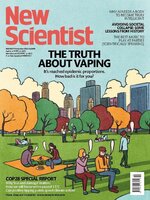 Dec 09 2023
Dec 09 2023
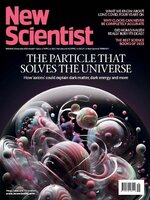 Dec 02 2023
Dec 02 2023
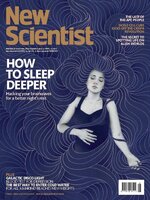 Nov 25 2023
Nov 25 2023
 Nov 18 2023
Nov 18 2023
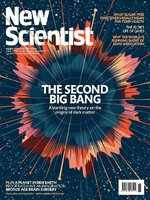 Nov 11 2023
Nov 11 2023
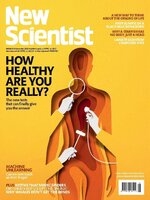 Nov 04 2023
Nov 04 2023
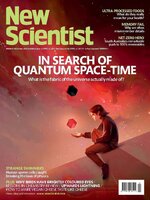 Oct 28 2023
Oct 28 2023
